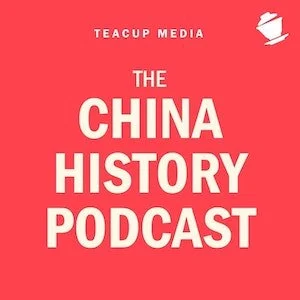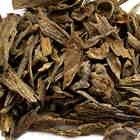Ep. 308 | The History of Guangzhou (Part 6)
In this final sixth episode of the History of Guangzhou series, the events of the Nanjing Decade and the city's role as a bastion of anti-Chiang Kai-shek factions will be discussed. Then we'll wind things down with a rush to the finish, reviewing the Japanese occupation, the fall of Guangzhou to the Communists, and finally take a quick look at the Special Economic Zones that helped to transform Guangzhou and the entire Pear River Delta Region.
Listen On Your Favorite Podcast Player
Terms in Episode
| Pinyin/Term | Chinese | English/Meaning |
|---|---|---|
| Guǎngzhōu | 广州 | Capital of Guangdong province |
| Qín Shǐhuáng | 秦始皇 | Founding Emperor of the Qin Dynasty, China's first emperor |
| Qīng Dynasty | 清朝 | China's final imperial dynasty, lasting 1644-1912 |
| Bǎinián Guóchǐ | 百年国耻 | The Hundred years of Humiliation |
| Chiang Kai-shek | 蒋介石 | 1887-1975, President of the Republic of China from 1950-1975, major figure in 20th century China |
| Guǎngdōng | 广东 | Province in southernmost China. Capital is Guangzhou |
| Chén Jìtáng | 陈济棠 | 1890-1954, Major military and political figure during the Nanjing Decade in Guangding and to a lesser extent, Guangxi |
| Hakka | 客家 | A Han Chinese subgroup whose ancestral homes are chiefly in the Hakka-speaking provincial areas of Guangdong, Fujian, Jiangxi, Guangxi, Sichuan, Hunan, Zhejiang, Hainan, Guizhou in China, as well as in parts of Taiwan. Unlike other Han Chinese subgroups, the Hakkas are not named after a geographical region in China. The word Hakka or "guest families" is Cantonese in origin and originally refers to the Northern Chinese refugees fleeing social unrest, upheaval and invasions in northern parts of China who migrated to the south. |
| Guǎngxī | 广西 | Province just to the west of Guangdong. |
| Nán Tiānwáng | 南天王 | the Southern Heavenly King, a nickname for Chen Jitang |
| Bái Chóngxī | 白崇禧 | 1893-1966, a Chinese general in the National Revolutionary Army and a prominent Chinese Nationalist leader. He was of Hui ethnicity and of the Muslim faith. From the mid-1920s to 1949, Bai and his close ally Li Zongren ruled Guangxi province as regional warlords with their own troops and considerable political autonomy. His relationship with Chiang Kai-shek was at various times antagonistic and cooperative. |
| Lǐ Zōngrén | 李宗仁 | 1890-1969, prominent Guangxi warlord and KMT military commander during the Northern Expedition, Second Sino-Japanese War and Chinese Civil War. He also served as vice-president and acting President of the Republic of China under the 1947 Constitution |
| Mukden Incident | 九一八 | A false flag event staged by Japanese military personnel on 9-18-1931 in the city of Shenyang (also called Mukden) that was used as a pretext for the 1931 Japanese invasion of Manchuria. |
| Jiāngxī | 江西 | Inland province in southern China |
| Jǐnggāngshān | 井冈山 | Mountain range near the Jiangxi-Hunan border. It's called the Birthplace of the Communist Red Army and "The Credle of the Chinese Revolution" |
| Yán’ān | 延安 | A prefecture-level city in northern Shaanxi province, bordering Shanxi to the east and Gansu to the west. Yan'an served as the headquarters of the Chinese Communists in the 1930's |
| Hú Hànmín | 胡汉民 | 1879-1936, Chinese philosopher and politician who was one of the early conservative right factional leaders in the KMT during the 1920's-30's |
| Chén Jiǒngmíng | 陈炯明 | 1878-1933, early revolutionary figure in Southern China during the late Qing and early Republican period |
| Jiāngnán | 江南 | The term "Jiangnan" means "South of the Yangzi River." It comprises a geographic area in China mmediately to the south of the lower reaches of the Yangtze River, Shanghai, the southern part of Jiangsu Province, the southeastern part of Anhui Province, the northern part of Jiangxi Province and the northern part of Zhejiang Province. |
| Liǎngguǎng Incident | 两广事变 | An attempted coup against the Chiang Kai-shek regime in July 1936 led unsuccessfully by Chen Jitang |
| Hǎinán | 海南 | Island province off the coast of western Guangdong |
| Dàlián | 大连 | Port city in Liaoning Province |
| Dàyà Bay | 大亚湾 | A bay in the South China SEa bordered by the Dapeng Peninsula of Shenzhen to the west and the city of Huizhou to the north and east. |
| Hànkǒu | 汉口 | City in Hubei that is part of Wuhan, Hubei Province |
| Wǔhàn | 武汉 | Major city in Hubei Province comprised of the cities of Hankou, Hanyang and Wuchang |
| Arthur Chin | 陈瑞钿 | 1913-1997, Son of a Toi-San Chinese American immigrant. Flew for the Chinese-American Volunteer Pilots. Arthur Chin went on to become the first American Air Force Ace of WWII, shooting down five enemy planes in the action he saw. |
| Zhōu Dynasty | 周朝 | A Bronze Age dynasty in northern China that lasted 1046-256 BC |
| Lín Zéxú | 林则徐 | 1785-1850, politician and scholar who served in a number of high-ranking positions in the Qing government. His forceful measures taken against the foreign traders dealing in opium, changed the course of history. Once a former lair for pirates, now it's the site of a nuclear power plant |
| Kūnmíng | 昆明 | Capital of Yunnan Province |
| Tiānhé | 天河 | A district of Guangzhou |
| Zhāng Fākuí | 张发奎 | 1896-1980, Chinese Nationalist general who fought against northern warlords, the Imperial Japanese Army and Chinese Communist forces in his military career. He served as commander-in-chief of the 8th Army Group and commander-in-chief of NRA ground force before retiring in Hong Kong in 1949 |
| Wāng Jīngwèi | 汪精卫 | 1883-1944, initially a member of the left wing of the Kuomintang, leading a government in Wuhan in opposition to the right-wing government in Nanjing, but later became increasingly anti-communist after his efforts to collaborate with the Chinese Communist Party ended in political failure. His political orientation veered sharply to the right later in his career after he collaborated with the Japanese. |
| Chén Bìjūn | 陳璧君 | 1891-1959, Wang Jingwei's wife and partner in crime in the eyes of many |
| Shǐxìng County | 始兴县 | A county in northern Guangdong that borders Jiangxi |
| Wú Pèifú | 吴佩孚 | 1874-1939, A major figure during the Warlord Era in China |
| Zhāng Zuòlín | 张作霖 | 1875-1928, another major figure during the Warlord Era, sometimes referred to as The Old Marshall |
| Nánchāng | 南昌 | Capital of Jiangxi Province |
| Zhào Tuó | 赵陀 | 240-137 BC, Qin dynasty Chinese general and first emperor of Nanyue. He participated in the conquest of the Baiyue peoples of Guangdong, Guangxi and Northern Vietnam. After the fall of the Qin, he established the independent kingdom of Nanyue with its capital in Panyu (now Guangzhou) in 204 BC |
| Nányuè Kingdom | 南越国 | A kingdom located in Southern China and northern Vietnam that lasted 204-111 BC, falling during the Western Han |
| Liú Yǎn | 刘䶮 | Founding emepror of the Southern Han Dynasty. He reigned from 917-942 |
| Southern Hàn Dynasty | 南汉 | One of the Ten Kingdoms that existed following the fall of the Tang Dynasty. The Southern Han lasted 917-971 |
| Chángshā | 长沙 | Capital of Hunan Province |
| Fúzhōu | 福州 | Capital of Fujian Province |
| Lánzhōu, Gānsù | 甘肃兰州 | Lanzhou is the capital of the northwestern province of Gansu |
| Shānxī | 山西 | Province in northern China located in between Shaanxi and Hebei |
| Yán Xīshān | 阎锡山 | 1883-1960, known as The Model Warlord, he governed Shanxi province during the Warlord Period all the way to the fall of the province to the Communists. |
| Tàiyuán | 太原 | Capital of Shanxi Province |
| Chóngqìng | 重庆 | Once a part of Sichuan, now a municipality in southwest China, also known in Hollywood as "Chungking" |
| Chéngdū | 成都 | Capital of Sichuan Province |
| kingdom of Shǔ | 蜀汉 | Also known as Shu Han and Han, one of the three kingdoms that competed for supremacy over China in the Three Kingdoms period (220–280). It was based in the area around present-day Hanzhong, Sichuan, Chongqing, Yunnan, Guizhou, and north Guangxi, an area historically referred to as "Shu" based on the name of the past ancient state of Shu |
| Liú Bèi | 刘备 | 161-223, a warlord in the late Eastern Han dynasty who founded the state of Shu Han in the Three Kingdoms period and became its first ruler |
| Taipei | 台北 | The capital of Taiwan, known also as Taipei |
| Nánhǎi | 南海 | The South Seas, referring to The South China Sea |
| Emperor Qiánlóng | 乾隆帝 | Qing emperor who reigned 1735-1796 |
| Gǎigè Kāifàng | 改革开放 | Reform and Opening Up to the World, the centerpiece of the Deng Xiaoping Reforms of the 1980's and 90's |
| Xí Jìnpíng | 习近平 | General Secretary of the CCP and the 7th President of the PRC |
| Xí Zhòngxūn | 习仲勋 | 1913-2002, father of China's current president and a major revolutionary during the rise of the Communists and the founding of the PRC |
| Shékǒu | 蛇口 | An area on the tip of Shenzhen at Nanshan, across the bay from Hong Kong's New Territories |
| Shēnzhēn | 深圳 | The first and most successful Special Economic Zone, today one of China's largest cities, located just over the border from Hong Kong |
| Zhūhǎi | 珠海 | Another Special Economic Zone located just over the border from Macau |
| Shàntóu | 汕头 | Port City in Eastern Guangdong, also known once as Swatow |
| Xiàmén | 厦门 | Port City in Southern Fujian |
| Fóshān | 佛山 | City just to the west of Guangzhou |
| Zhàoqìng | 肇庆 | City just to the west of Foshan |
| Jiāngmén | 江门 | City southwest of Guangzhou and south of Foshan |
| Dōngguǎn | 东莞 | City just to the east of Guangzhou |
| Huìzhōu | 惠州 | City just to the east of Dongguan |

















his all took place in the final moments of the Warlord Era, right after the Central Plains War. This act perpetrated by warlord Sun Dianying 孙殿英 epitomized the venality of these men.